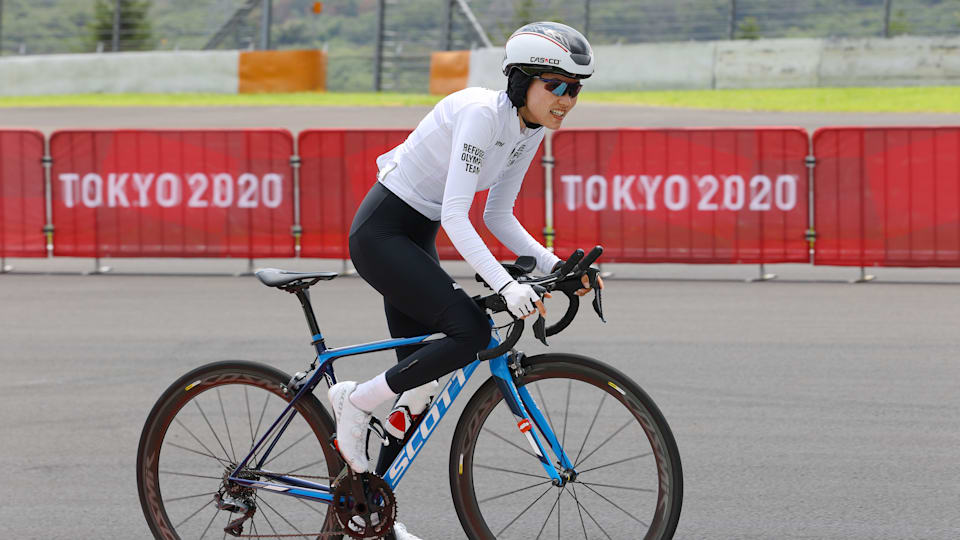Refugee cyclist Masomah Ali Zada makes memorable Olympic debut
The IOC Refugee Olympic Team athlete took part in the women’s individual time trial at Tokyo 2020, providing hope and inspiration to millions around the world.

It was an Olympic debut to remember for IOC Refugee Olympic Team athlete Masomah Ali Zada at Tokyo 2020.
The Afghanistan-born road cyclist may have finished 25th out of 25 athletes in the women’s individual time trial, but the result is not of significance.
Given the hardships and trauma Masomah has lived through, the fact that she is competing at the Olympic Games is a triumph against significant odds.
Her story provides hope and inspiration to millions of women and displaced people around the world, showing them that they too can achieve their dreams.
Claiming asylum to cycle freely
Masomah was born in Afghanistan into a conservative community where girls were not encouraged to ride bikes.
When the Taliban took over the country, her family became exiled in neighbouring Iran.
Eventually they returned to Afghanistan, the sports teacher, her sister Zahra and a group of other women pursued their passion on two wheels.
The girls were threatened by the community when they started cycling competitively, and Masomah’s family fled to France in 2017. After being granted asylum, the sisters could finally train and study at university without fear.
Soon after, Masomah received an IOC Refugee Athlete Scholarship, which was another step towards achieving her dream of competing at the Olympic Games.
"By taking part in the Olympic Games, I want to convince those who think a woman on a bicycle is inappropriate or find it strange that a Muslim woman wearing a headscarf is a cyclist that no, it's normal,” Masomah Ali Zada to Paris Match.
"I want to show that women are free to do whatever they want."
Outside of cycling she is studying civil engineering at university in Lille. The sisters’ story has gained popularity in France after they were featured in a documentary called “Les Petites Reines de Kaboul” or “The Small Queens of Kabul”.
